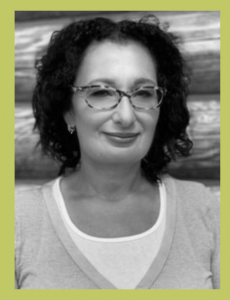Experiencing an interruption in education is not a cognitive issue. It is a lack of opportunity issue.
 Dr. Margaret Aisicovich, a member of my professional learning network, agrees. But her research and experience, unfortunately, suggest that many educators still believe that SLIFE (Students with limited or interrupted formal education) are less capable than other students.
Dr. Margaret Aisicovich, a member of my professional learning network, agrees. But her research and experience, unfortunately, suggest that many educators still believe that SLIFE (Students with limited or interrupted formal education) are less capable than other students.
I was delighted to have Dr. Aisicovich join me for a live show with Stephen Hurley. You can listen to my reflections and some of our chat right here:
Listen to “BAP097 Feeling Prepared to Support SLIFE ft. Dr. Margaret Aisicovich” on Spreaker.
I am using her research in my own doctoral work. I am still early in my own process but my literature review and preliminary observations are in direct alignment with what Margaret shares on the show. Part of her research centers around how teachers view their ability to be effective with SLIFE. Her work was conducted in Manitoba, Canada, and in her area, students who missed foundational education are referred to as LAL (Literacy, Academics, and Language) students.
You can read more from Dr. Aisicovich’s dissertation via the University of Manitoba’s library.
Dr. Aisicovich has a master’s and a PhD in Education. She has been a K-12 principal, has taught grades K–12, and has taught in higher education. While she was teaching, she taught English as an additional language to new Canadians and published two books with her students: How I Got My Name, Lost it and Found it Again and An Anthology of School Stories by EAL High School Students in English and Their Mother Tongue. You can learn more about her work at her website: www.maisicovich.com
Dr. Aisicovich was born in Poland and moved to Canada at the age of six. She talks about that experience on the show. Her perspective was so great for my reflection.
A big takeaway for me was how much we need to plan for our SLIFE. Namely:
- Transitioning to mainstream classes
- How they will get access to grade-level standards
- How we will create spaces where they feel valued
- Creating a system of equity
But a critical part of the equation is whether or not the teacher believes they can support the student.
I keep thinking about the teachers that would cry to Margaret because they did not feel prepared to support SLIFE/LAL learners. Many of us have felt this way.
This is one of the main reasons I do this show. It is helping me learn. The more I learn from colleagues like Dr. Aisicovich, the more prepared I feel to support LAL/SLIFE. All teachers deserve training to support their under-schooled students.
If you’re feeling like you want more support in this area, be sure to express that concern to your district, province, or your administrator. And I’m including a ton of FREE resources below to support you. Also, check out other Boosting Achievement Podcast Episodes on everything from how to teach a student how to read to practical strategies that can happen in every classroom.
Thank you, once again, Margaret. We are excited for your book to come out in the fall of 2021. It is not about ESL or SLIFE/LAL students. It is a book with tales about the pitfalls, heartbreak, and challenges people face when they choose the profession of being an educator. Watch the newly released trailer here:
We are excited to have Margaret come back on the show to share more about the book closer to the release date. Stay up to date on the book by following Dr. Aisicovich on Twitter. She is at @MAisicovich
Thank you for stopping by the blog/show notes… for supporting my learning journey… and for all you do!
Here are the learning opportunities that can help educators support SLIFE
The Virtual SLIFE conference happened in Nov 2020 and all the sessions are still available on YouTube:
The ML Summit will be happening throughout the month f July. There are several SLIFE sessions:
Tune in for the next podcast with guest, John Seidlitz. He will be sharing about the upcoming conference “Amplifying the Voices of Unaccompanied Minors”




